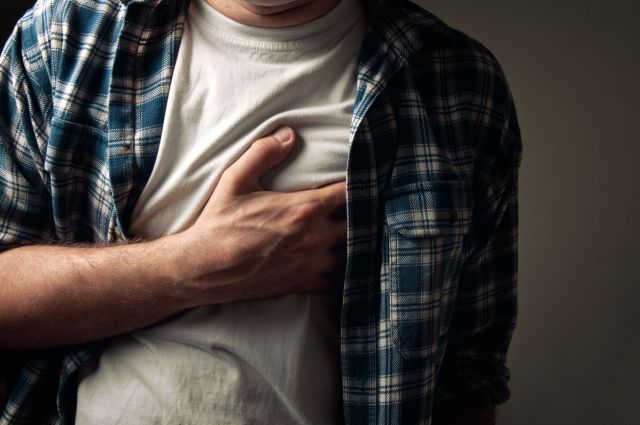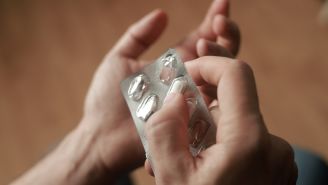Updated on November 4, 2024.
If you’re one of the approximately 20 percent of adults in the United States with gastroesophageal reflux disease (GERD), it’s pretty likely that you’ve experienced the discomfort and frustration of nocturnal, or nighttime, symptoms. In fact, restful sleep at any time of the day may be elusive for people with GERD.
Nighttime sleeping
According to the International Foundation for Gastrointestinal Disorders (IFFGD), as many as 79 percent of people with GERD experience symptoms while sleeping at night, which can disrupt their sleep quality. A 2022 study published in the Journal of Clinical Sleep Medicine found that people with nighttime GERD symptoms had less efficient sleep, were awake at night for a longer total period of time, slept for less time, and had less rapid eye movement (REM) sleep.
When sleep is disrupted, it can affect how productive and alert you feel the next day. People who experience nighttime reflux over a long period of time are also at risk of more health issues affecting the lungs, throat, and mouth. And their overall quality of life tends to be lower than for people who only have daytime reflux.
Naps
A quick nap in the middle of the day might be a great way to battle an afternoon energy slump, but for people with GERD, it could be more likely to bring on a bout of reflux. While the focus of almost all sleep-related GERD research has been on nighttime symptoms, one small 2015 study did look at naps.
The study, published in the journal Clinical Gastroenterology and Hepatology, looked at 15 people with GERD who liked to nap. Researchers had the participants complete questionnaires about their reflux symptoms and sleep quality. Then they monitored their sleep and wake times, as well as the acid levels in the esophagus both before and during sleep.
They found that heartburn and reflux were worse during daytime naps than during nighttime sleep. While napping, the people had more frequent periods of reflux—up to 40 times per hour, on average. The reflux also lasted longer during naps, and the nappers were more likely to complain of symptoms, such as burning in the stomach and the back of the throat.
That’s likely because the deep sleep people experience at night helps to suppress reflux symptoms, while light napping doesn’t. Naps in the middle of the day may also come soon after a meal like brunch or lunch, and lying down sooner than two to three hours after eating a meal can trigger symptoms in people with GERD.
Getting sleep with GERD
Still, you don’t have to give up on tranquil nighttime sleep or restorative naps. Despite the heartburn and other unpleasant symptoms, midday naps can still be a good way to recharge and give your health a boost. So instead, try these tips—whether you’re sleeping at night or during the day—to help you rest a little easier, despite the reflux.
Eat earlier (and lighter)
Eating a big meal right before you sleep is a recipe for reflux. Napping or heading to bed right after you eat, before your food has time to properly digest, could increase the chance of GERD complications such as damage to the esophagus. Instead, try waiting two to three hours after eating before sleeping. Eating smaller meals throughout the day can also help. Just make sure to avoid food that could aggravate your heartburn.
Prop up
Whether you’re napping or tucking in for the night, pick a good sleeping position. Avoid sleeping flat on your back, since lying flat puts pressure on your stomach that drives acid into the esophagus. Instead, sleep propped up to make it harder for acid to back up into the esophagus, reducing those uncomfortable GERD symptoms.
To do this, try elevating the head of your bed six to 10 inches to keep stomach acid from refluxing. It’s important to elevate your whole upper body, so don’t use regular pillows to accomplish this. Try risers for your bed or beneath the mattress, or a wedge pillow specifically designed for people with GERD.
And if you can, sleep on your left side. Research has shown that due to the location and anatomy of your stomach, sleeping on your left side may significantly help reduce how much reflux you experience.
Loosen your waistband
Whether you’re heading to bed or opting for a quick afternoon nap, make sure the clothes you’re wearing aren’t constricting your middle. Tight clothing and belts squeeze on your intestinal tract, which may cause heartburn and acid reflux.
If you continue to experience GERD symptoms after making adjustments like these to your daily routine, speak with a healthcare provider about other steps to take, including medical treatment.







